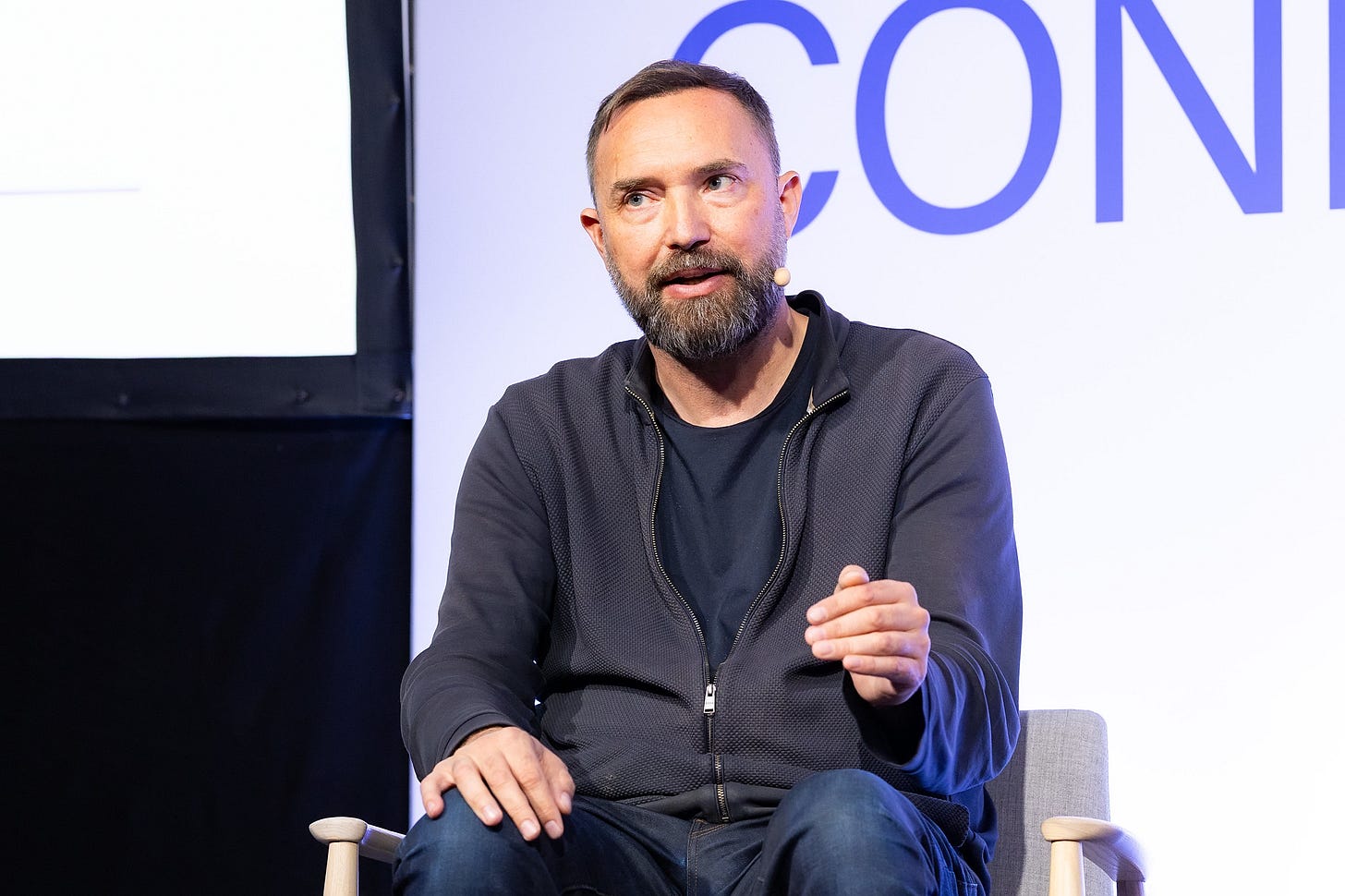Helsing CEO Torsten Reil Urges Europe to Build for Defence Tech Sovereignty
Torsten Reil and General Catalyst’s Jeannette zu Fürstenberg say Europe has woken up to the real prospect of adversarial threat. At Resilience Conference, they urged translating this into action
Russia is escalating its incursions into European airspace and territory, and it’s driving a faster pace of activity among European governments when it comes to defence tech. This was a dominant theme in a discussion between the co-CEO of German startup Helsing Torsten Reil and General Catalyst managing director Jeannette zu Fürstenberg at Resilience Conference earlier this month.
“We’ve been seeing incursions of air territories over various countries, including Poland and Estonia,” said Reil. “What’s been happening with drones entering areas that they shouldn’t [be in] has started to sharpen people’s minds.”
After years of delay, he continued, “there is now a sense of urgency in the various nations to speed up procurement, to buy the systems that need to be bought, in a way that maybe wasn’t even the case about a year ago… Can we see a market change? Yes.”
European spend on defence — and thus the ecosystem of companies building tools for it — is the chief benefactor of that. “For the first time in history, Europe is actually outpacing the US in total defence spend,” she said. “Germany specifically has ramped [up] its defence spend and is now really trying to wrap its head around how to actually procure for these new, modern technologies.”
The major lesson from Ukraine is that “traditional systems just don’t do it anymore,” she noted, citing figures that indicate some 80% of spend is on new systems at the moment. “It’s actually much closer to 95% that is really drone-based versus traditional systems,” she added.
Combined with growing defence budgets, this is translating into business for defence tech startups. Germany, for example, has long limited its military budget to 1% of GDP. Earlier this year, that limit saw a drastic change when the committed to gradually raising defence spend over the next several years to end at 3.5% of GDP by 2029. Other countries like the UK are also doubling down on more defence spend.
Reil confirmed this is already yielding new contracts.
“If defence spending is increased, I think there’s now more money for innovative technologies and for the technologies that we know now work in Ukraine and the kind of new type of conflict,” he said.
Both speakers agreed on the need for European military sovereignty — that is, a manufacturing supply chain that can be traced to Europe, or its allies in cases where Europe cannot do it on its own.
“There are certain technologies that we just don’t have,” Fürstenberg said, “so if you do the Patriot system or the F-35, it does make sense to collaborate and lead on US technology. But where we have credible players like Helsing and others in Europe… then we should very much aspire for [sovereignty].”
To that end, part of Helsing’s mission has been to strengthen the region’s sovereignty, Reil said.
“We should develop homegrown systems that we control, both in terms of actually controlling the whole technology, but also the ethics side of it… what degree of autonomy are we prepared to accept is something that we need to be able to control.” Helsing recently announced an autonomous jet fighter project called Europa, which Reil said “can be built in Europe and should be built in Europe.”
Europe’s industrial base remains an advantage. “Germany is home to a lot of component manufacturers that are very much needed if you wanted to scale drone manufacturing,” Fürstenberg said, though dependencies on China “are actually critical to resolve.”
She also talked about how attitudes in venture capital have changed over the years as a result of geopolitics.
“When Torsten raised the seed round, I wasn’t able to do it from my fund back then,” she said, explaining that defence investments were still restricted under EIF-structured funds. “Even my team was divided… but I think venture capital needs to be agile in the way that they can lean into these people redefining industries.” She didn’t comment on how she and those in favour of defence tech at her firm were able to change the tune.
From the perspective of a founder, though, Reil said the investment climate has “changed markedly”, with many European funds now pursuing defence (which is presumably translating into a lot of inbound interest).
“When we started, it wasn’t possible to raise from European VCs… they didn’t want to touch defence,” he said. “Now almost everyone wants to go into defence.”
Fürstenberg concluded that governments are beginning to adapt as well.
“We definitely see the willingness to do so, which is a big start,” she said. “Procurement is changing… Sweden has ring-fenced a specific part of the budget only dedicated towards modern defence technologies, and Greece is thinking about something similar. So we are seeing a real change in that sense.”


